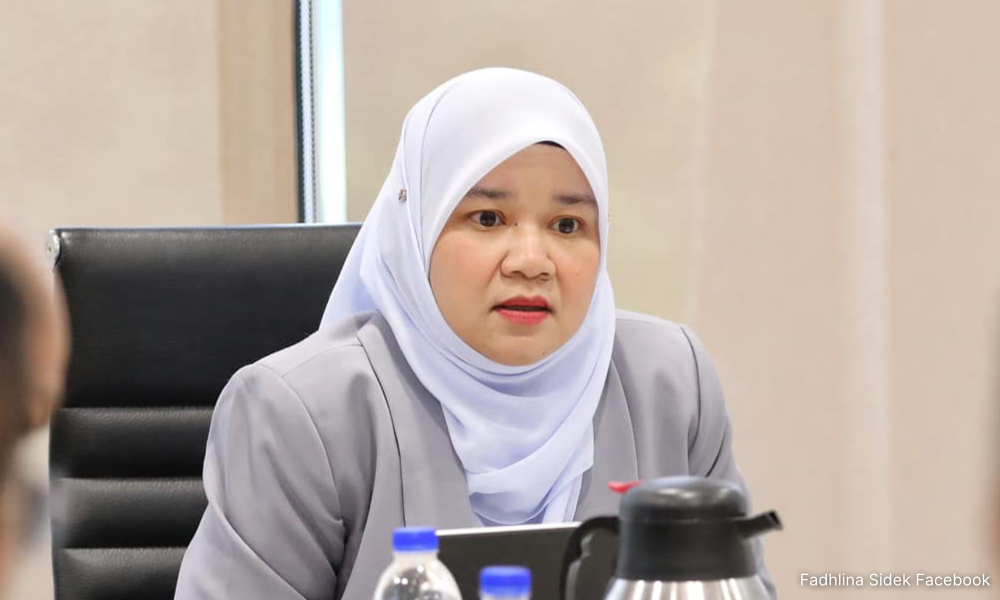When the United States Armed Forces completed their withdrawal from Afghanistan in August 2021, one of the first Malaysian organisations to congratulate the Taliban government which took over was PAS.
Its organ, Harakahdaily, in an article, quoted the Islamist party’s international affairs and foreign relations bureau chief, Muhammad Khalil Abdul Hadi, describing the Taliban as “very moderate”.
Khalil said the Taliban’s “moderation” can be seen by its promise to protect women’s rights and allow them to work.
“Girls can be seen starting the schooling session and the Taliban has also invited countries in the world to aid the country.” Real or imaginary?
Subsequently, former minister Zuraida Kamaruddin offered to visit Afghanistan to guide the Taliban on women’s rights and empowerment.
Saying the Taliban’s takeover of Afghanistan would undeniably lead to hostility towards progress and women’s rights there, she suggested that other Muslim countries also send missions to educate the Islamist organisation on women’s empowerment.
“In fact, progressive Muslim countries around the world should also send representatives among their female leaders to Afghanistan to help with the country’s women’s empowerment agenda.
“As a modernising Islamic country, there are many things we can share with them, especially on how to optimise the role of women in administration, politics, education, economics and social, which are in line with the true teachings of Islam,” she said in a statement.

Subsequently, in a commentary, I asked: “YB, if you are talking of better opportunities for women and girls, I wonder why you did not take a stand against child marriages. No one wanted you to take up cudgels to do battle but the least you could have done as a lawmaker was to convince fellow MPs of the need to protect young women.
“Instances of girls being asked to discontinue school and get married are no longer isolated. Would you allow your teenage daughter or granddaughter to marry a man old enough to be their grandfather?”
Almost immediately, an NGO linked to Zuraida - Council of Malaysian Women Political Leaders - came down like a ton of bricks, accusing me of using the article as an “excuse to take potshots at the former minister.”
“His article seems to reflect only his own personal dislike of Zuraida and her political allegiance,” it claimed.
Oppression against women continues
The oppression against women continued and has been progressively erased from public spaces, prompting the United Nations to denounce the “gender apartheid” the administration has established.
Taliban authorities have banned post-primary education for girls and women, restricted employment and blocked access to parks and other public places.
In October, the Taliban banned women from hearing other women's voices in a cruel rule that sparked fears that women would no longer be able to talk to each other.
Women were also ordered to cover their faces “to avoid temptation and tempting others” and were banned from speaking if unfamiliar men who were not husbands or close relatives were present.
Afghanistan's minister for the promotion of virtue and prevention of vice, Khalid Hanafi said at the time: “Even when an adult female prays and another female passes by, she must not pray loudly enough for them to hear.”
The group said that any woman who dares to break the new rules will be arrested and sent to prison.
Nevertheless, Malaysia’s “love affair” with the Taliban continued with Education Minister Fadhlina Sidek defending hosting a delegation from Afghanistan despite the country’s restrictions on women’s access to education last November.
She said she would seize every opportunity to open the eyes of its Taliban-led government on women’s right to education, even if the odds of them allowing women back to school are “slim as onion skin”.

“Malaysia could adopt the policy of ostracising Afghanistan for the Taliban’s stance on women’s educational rights. Whether it remains illegal, or schools are reopened for women, we may not be affected so far from Afghanistan.
“But if I could convince them that educating women is not contrary to Islam but is in line with Islamic values, then it would be meaningful for women in Afghanistan when they can return to school.”
Business as usual
Has anything changed? Nothing, Zero, Zich. It is as business as usual despite Malaysia’s role in the “education” of Afghan leaders.
Last week, there was yet another diktat - the ban on construction of windows in residential buildings that overlook areas used by Afghan women in a brutal new crackdown.
Taking to X last Saturday, AFP quoted Taliban spokesperson Zabihullah Mujahid as saying new buildings should not have windows through which it is possible to see “the courtyard, kitchen, neighbour's well, and other places usually used by women”.
He added: “Seeing women working in kitchens, in courtyards, or collecting water from wells can lead to obscene acts.”
The damage caused by the ban on education - which will affect an entire generation and the future of the country - is fast becoming irreversible.
To call the Taliban’s stance bird-brained and say the lunatics are at the gate would undoubtedly bring a barrage of accusations, including allegations of promoting Islamophobia.
In addition to being a barefaced human rights violation, excluding Afghan girls and women from education is remarkably short-sighted, as their potential could be harnessed to rebuild the country.
Yasmine Sherif, the executive director of “Education Cannot Wait” said: “Tragically, the lack of prospects for their daughters puts even more pressure on crisis-stricken families: the education ban is associated with a 25 percent increase in the rate of child marriage, which tends to be followed by early pregnancy.
“These children will be born to illiterate mothers, which indeed does not serve Afghanistan’s long-term interest.”
The Taliban’s gender apartheid has no basis in Afghan culture, and Afghanistan is the only Muslim country to prohibit girls and women from attending school. She wrote that education for all is a fundamental principle in Islam.
So, all this syiok sendiri (self-absorbed) exercise in showing how Malaysia’s education system works and the intention to make the Taliban “learn from” Malaysia has been an abject failure.
Shouldn’t we care that women are treated in such a manner? The soft sell has not worked, but taking a hardline may be seen as political suicide by some parties. - Mkini
R NADESWARAN is a veteran journalist who writes on bread-and-butter issues. Comments: citizen.nades22@gmail.com
The views expressed here are those of the author/contributor and do not necessarily represent the views of MMKtT.

No comments:
Post a Comment
Note: Only a member of this blog may post a comment.